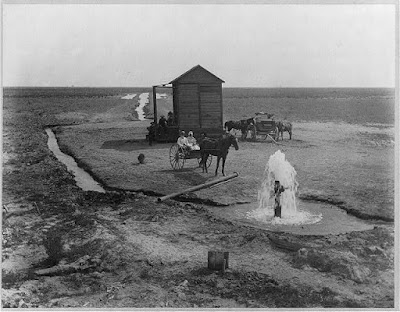Over at Legal Planet, Holly Doremus complains:
California’s water law was developed in the 19th century. It has not been comprehensively reformed since, despite substantial population growth, changing social values, and the appointment 45 years ago of a blue-ribbon commission to recommend changes. Now the “new normal” of the anthropocene promises reduced water availability coincident with increased demand.
It is past time for comprehensive reconsideration of California’s water law system. Fellow Planeteer Rick Frank and I have been working with a diverse group of water law experts to come up with some initial recommendations for change.
The experts' report, titled "Updating California Water Laws to Address Drought and Climate Change", is here.
California water law is indeed antiquated, arcane, and impossibly complex. The odd thing to my mind is how mild the reforms being called for are - things like speeding up stream adjudications, protecting domestic wells, improving monitoring and enforcement, and the like - mostly very nineteenth-century ideas themselves (see my book, The Colorado Doctrine). Nothing questioning the basics of the mixed appropriation and riparian system that California uses, or adopting ideas from the many models of water law in countries around the world. I suspect that the authors think this is all that is politically and constitutionally feasible at this point, but it seems to me that even if all these reforms are adopted, California will remain with a very nineteenth-century water law.
Perhaps a reminder of how much legal history is never just history.
 |
| Carleton E. Watkins, Horse-drawn cart beside artesian well, Kern County. c. 1880 |
No comments:
Post a Comment